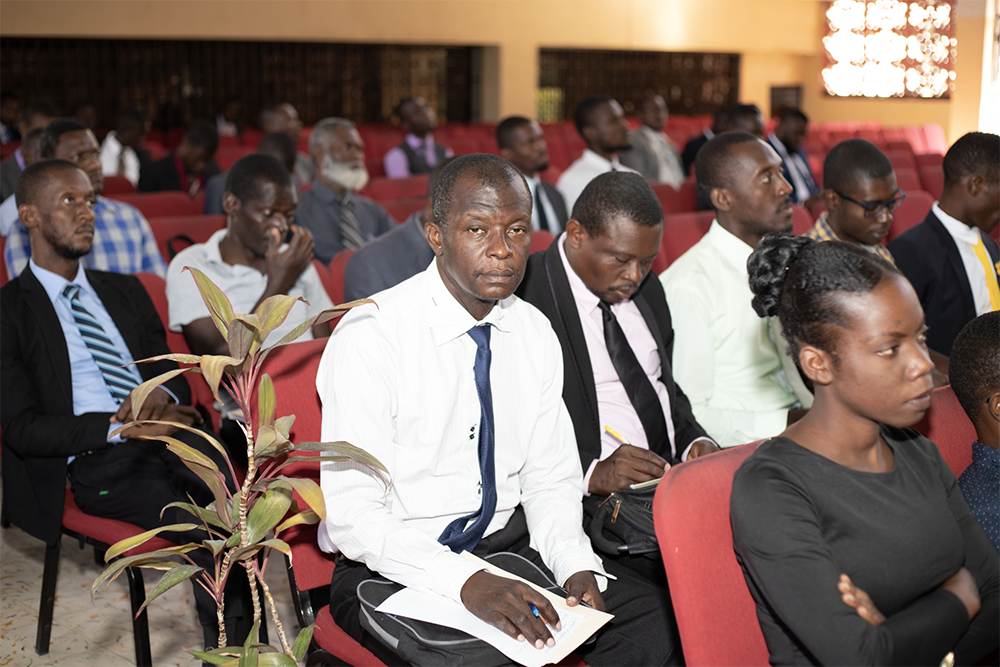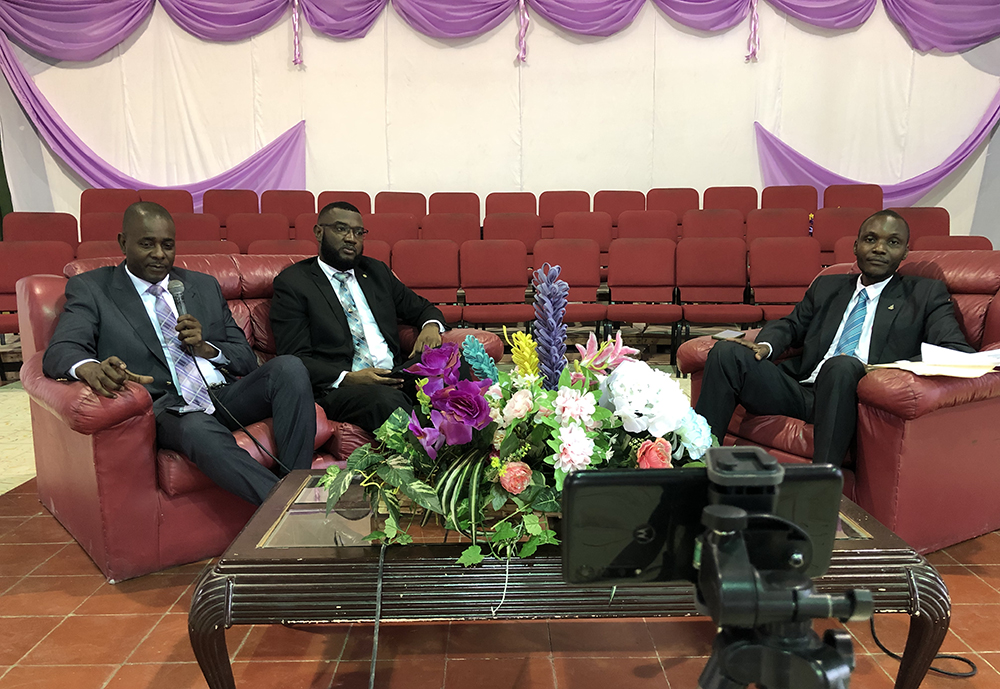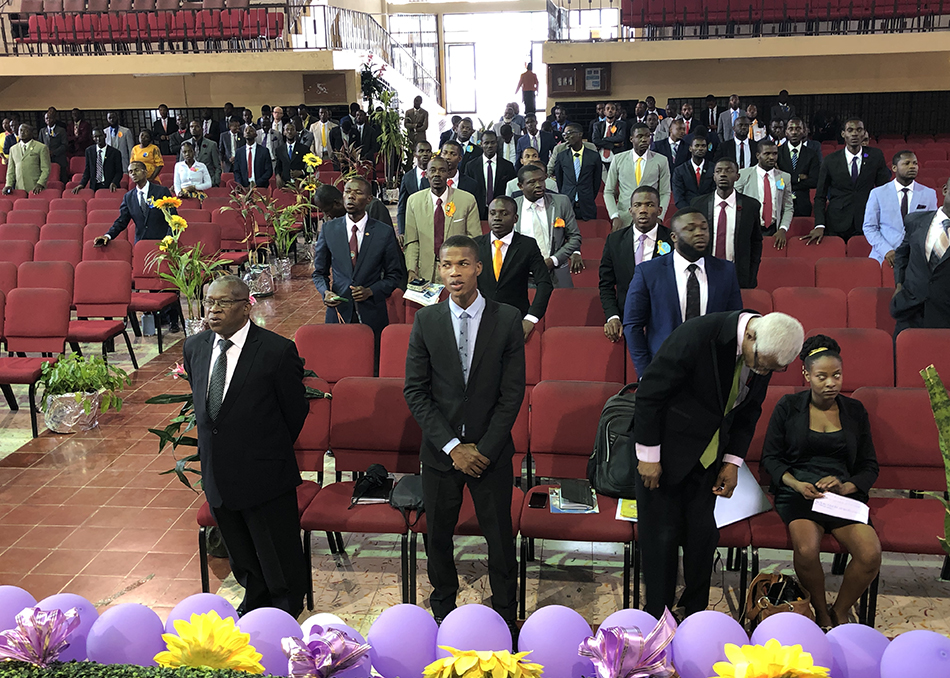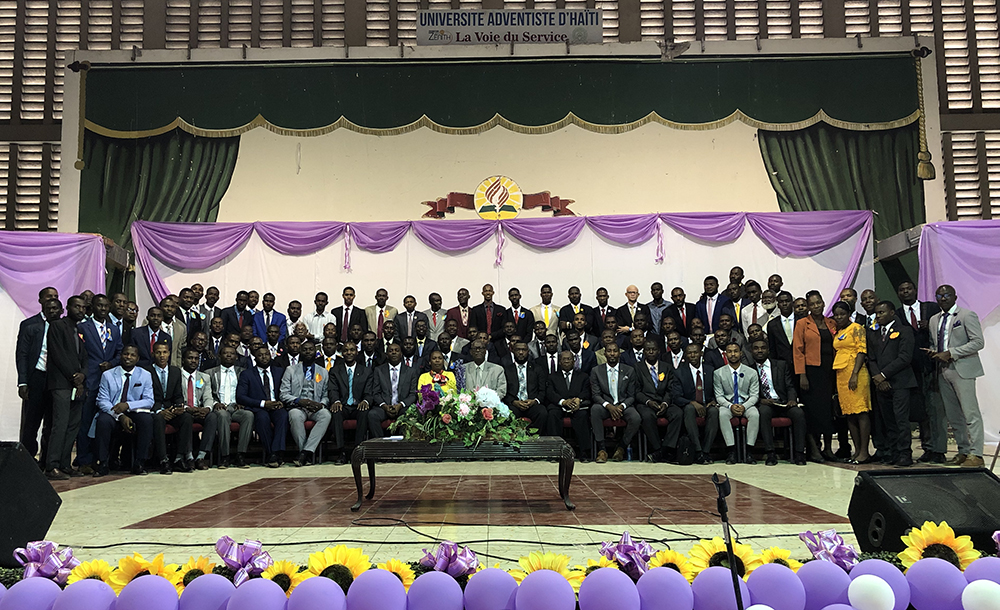In Haiti, Forum Equips Pastors and Theology Students for Inclusion in Mission
April 27, 2023 | Carrefour, Port-au-Prince, Haiti | Jean Carmy Felixon and Inter-American Division News
The Adventist University of Haiti (UNAH) recently held its annual Theological Forum on its main campus in Carrefour, Port-au-Prince, from Mar. 9-11, 2023. The forum included more than 100 theology students and district pastors, in a hybrid online and in-person format.
Themed, “Towards a Pastorate for All in the 21st Century,” the event was hosted by the UNAH School of Theology and sought to equip pastors and theology students for inclusion and non-discrimination in pastoral ministry.

Over 100 pastors and theology students sit during the Adventist University of Haiti in Carrefour, Port-au-Prince, Haiti, for the annual Theology Forum to be equipped for inclusion and non-discrimination in pastoral ministry, Mar. 9-11, 2023. [Photo: Jean Carmy Felixon]
“The way the Adventist Church was run in 1990 may not be the same in 2023. While the church hasn’t changed its identity, it has to find ways to respond to each group in society,” said Etienne.
A pastor for all
At the same time, he explained that being a pastor for all does not mean that anyone can be a pastor. “Such a statement would be contrary to biblical teaching on spiritual gifts. What it means is that the ministry of the pastor extends to everyone and goes beyond the congregation that one has under their care,” added Etienne. “An Adventist pastor must be a pastor for the community, offering his services to community residents who are not members of the congregation.”
In his message to officially open the event, Pastor Leonard Johnson, executive secretary of the Inter-American Division, addressed the issue of member retention. “It is a major challenge for the Seventh-day Adventist Church in the 21st century.”

L-R: Pastors Edgard Étienne, Dean of Faculty of Theology, Dr Watland François, Vice-Rector for Academic Affairs, and Dr Sénèque Edmond, Rector/President of UNAH
Johnson invited event participants to follow Jesus’ methods, which included winning people’s hearts and being an active part in their lives. “Being a pastor is more than preaching and teaching; you have to win people’s hearts,” he said. “You must strive to understand people against the background of their experiences, their pain. You need to spend time with them.”
Mission and church growth
During his presentation on church growth in a post-modern context, UNAH academic affairs vice-president Watland François drew the attention of pastors and students to their mission, something that, he said, can ensure the growth of the church. Dr. François showed the connection between quantitative growth and qualitative growth. “You need quantity to have quality, but you need quality to have quantity,” he said.
François also showed some challenges postmodernism brings. “Everything is questioned; binarism and any pre-established truth are rejected,” he explained. According to François, Millennials want the same things that other generations as regard the mission of the church but with other methods. “Being a pastor in the 21st century requires holding firmly to the principles of the church but being creative and innovative,” François said. “Be firm in principles and open in habits,” he advised.
Topics for the Times
Plenary and breakout sessions included topics such as relationships with other religions, human rights, technology, personal spirituality, and independent ministries. In a Sabbath plenary, UNAH president Edmond Sénèque invited those who would like to collaborate with independent ministries to choose those ministries which support the mission of the church. He mentioned Maranatha Volunteers International, a ministry which supported UNAH especially after the 2010 earthquake.

Part of the atendees sing during one of the services at the Adventist University of Haiti main church. [Photo: Jermy Carmy Felixon]
He mentioned the recent unfortunate incident in the Philippines, where a helicopter disappeared over the ocean. “People who were not church members have been involved in the search for the missing, thanks to the good name of the church,” he shared. Etienne also warned against looking down on other non-Adventist believers. In Haiti, he said, we need to do more to connect with other believers.
Facing unique challenges
These and other topics are topics relevant for the current challenges Adventist pastors must face in Haiti and elsewhere, explained Etienne.
“Currently, in Haiti, the challenges of pastors are multiple. We have a church mostly made up of young people, who are less and less involved. And at a time when the world church is promoting ‘Total Member Involvement,’ the lack of youth involvement is really problematic,” said Etienne.

Pastors and theology students take a group photo during the Theology Forum event. [Photo: Jermy Carmy Felixon]
Haiti is also facing major socio-political challenges, explained Etienne. “Presently, there are churches that cannot meet on Wednesday evenings, and other congregations that cannot even meet on Sabbath mornings,” he said.
A Turning Point
In his Sabbath sermon, Haiti Union President Pastor Pierre Caporal called pastors to be “neither indifferent nor insensitive to the suffering present in the environment where he exercises his pastoral ministry.” He invited church members and leaders to cry out to the Lord in the face of the current state of their country. “When God hears our cries, He will act,” Caporal said.
Caporal also invited students to rely on and keep trusting God, even amid an uncertain context.
Lauvenson Lauvin, a student who participated in the forum, said that his expectations were met. “We witnessed an emphasis in a Christocentric pastorate,” Lauvin said. “For me, this is a turning point in our work.”